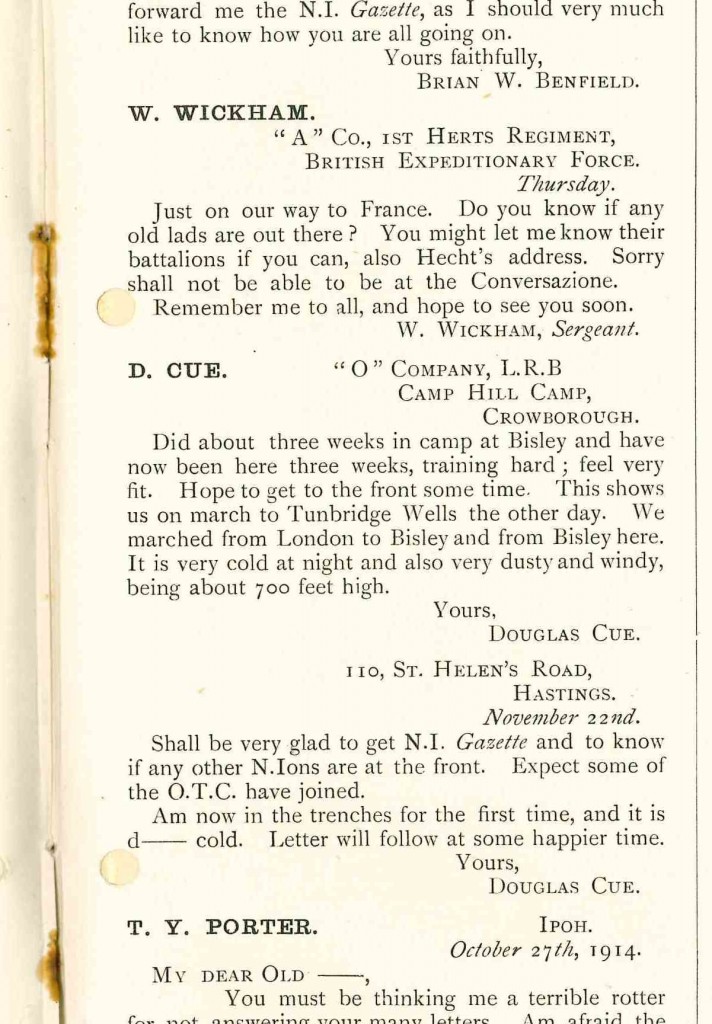City, University of London was founded as The Northampton Institute, and over the years its staff, students and Alumni have sadly, like most people, been unable to escape the ravages of war.
Whilst academics provided training for members of the armed forces during World War II, local people sheltered in the basement as bombs fell. The Engineering Faculty facilities were used to produce munitions and communication tools during the First World War, and the Institute was involved in helping injured former service personnel following the conflict.
The Archive collection here at City contains records and images from the Institution’s history, and many of you will have seen the commemorative display on the wall of the College Building (opposite the Saddlers Common Room) as you pass through, which features photographs and stories from those times of crisis; events also well documented in the Student Union and Society publications of the day.
An Editorial from the Northampton Engineering College Magazine in November 1914 considers the dilemma of students at the time and reports on a Student Union debate concerning whether “students should enlist” or “students ought not to enlist” (they concluded they should). It then describes how the governing bodies, including the University of London:
“are making it as easy as possible for a student who enlists now to resume his studies again after the war, but it is doubtful whether after months of the glorious and free life of a soldier one could again settle down to the ceaseless poring over ponderous tomes which is so characteristic of our student life…”
In February 1915 the Editorial of The Northampton Gazette featured several appeals: one was for subscriptions to keep the publication going during those tough times, another was for correspondents to send in stories from the Front, and a third was asking soldiers overseas to send a postcard home confirming they had received their copies of the Gazette in the post. ‘Our Letter Bag’ featured some of this correspondence:
 How time, hindsight and records from the past shed light on historical events, particularly those we remember on days like this.
How time, hindsight and records from the past shed light on historical events, particularly those we remember on days like this.